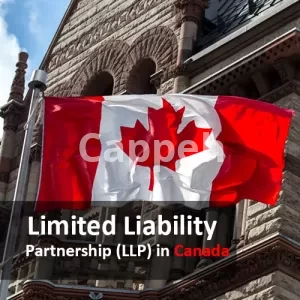What is a Partnership in Canada
A partnership is an arrangement where parties, known as business partners, agree to cooperate to advance their mutual interests. The partners in a partnership may be individuals, businesses, interest-based organizations, schools, governments or combinations.
Three Kinds of Partnership Structures
Provincial statutes in Canada recognize three types of partnerships:
- general partnerships;
- limited partnerships; and.
- limited liability partnerships.
In Canada, partnership structures involve the creation of the legal entity known as a "partnership". There are three kinds of partnerships in Canada: general partnerships; limited partnerships; and limited liability partnerships (this last kind is not yet available in all provinces). One of the main reasons to use any kind of partnership is for income tax planning. In a partnership (any kind), profits or losses of the partnership have to be reported by the partners themselves and not by the partnership. (In some cases the partnership has to file a reporting form, but doing so doesn't change the responsibility for paying taxes.) So partnerships are often used as investment vehicles in the investment business or for restaurants or in film development, because any losses can be flowed through to the underlying partners, and set off against other income in the right circumstances.
General Partnerships
Creating a general partnership can be as easy as incorporating, but setting up some general partnerships and all limited partnerships or the limited liability partnerships takes more work than incorporating. The reason for this is the need to draw up a suitable partnership agreement. There's no "one size fits all" kind of agreement. Corporations can be extensively customized as well, but they're much more "off the rack" than the typical partnership.
Limited Partnerships
Because of the unlimited liability that a general partner faces (whether in a general partnership or as a general partner in a limited partnership), general partnerships are not used unless it's not possible or practicable to use another structure (as in some of the professions, such as law or accounting) or unless certain income tax results are wanted that can't be obtained in any other way. It's possible to set up a general partnership where each partner is a corporation, and so reduce (but not eliminate) the liability risk. In a limited partnership, there is a general partner (which is usually a corporation) and one or more limited partners. The limited partners have limited liability (to the extent of their investment in the partnership) for liabilities of the partnership. The general partner has unlimited liability for partnership liabilities. A limited partner who engages in managing the limited partnership will lose that partner's limited liability. Because of this limited liability feature, a limited partnership is often the vehicle of choice for raising money for certain kinds of business ventures.
Limited Liability Partnerships - Fairly New in Canada
Don't confuse a "limited partnership" (which has been around for a long time), with a "limited liability partnership" ("LLP", for short) (which is fairly new in Canada). A limited liability partnership is a general partnership in which liability of even the general partners is limited (not done away with, but limited). Ontario has had LLPs for a few years now. BC had lagged behind, but in 2004 the government finally passed legislation allowing these kinds of entities to be created in BC. This new kind of partnership allows all pre-existing general partnerships or registered limited partnerships to file a designation with the BC Corporate Registry to change into a LLP. Or you can create one from scratch. The benefit of this structure is that it reduces, but doesn't eliminate, the liability that general partners face. If something goes wrong in a LLP, the partnership itself can be sued, and the assets of any particular partner who did something wrong will be at risk. But the assets of the other partners will be protected.
Do partnerships pay tax in Canada?
Generally, a partnership does not pay income tax on its income and does not file an income tax return. Instead, each partner files an income tax return to report their share of the partnership's net income or loss.
How do partners get paid in a partnership Canada?
Each partner contributes money, labour, property, or skills to the partnership. In return, each partner is entitled to a share of the profits or losses of the business. The business profits (or losses) are usually divided among the partners based on the partnership agreement.
Can my partner sponsor me in Canada?
If you're eligible, you can sponsor your spouse, partner or dependent children to become permanent residents of Canada. If you do, you must be able to: support them financially. make sure they don't need social assistance from the government.
If you are planning to Set up & Open a Partnership in Canada with the above description, contact me
| Product Location | , Canada |
No reviews found!





























No comments found for this product. Be the first to comment!